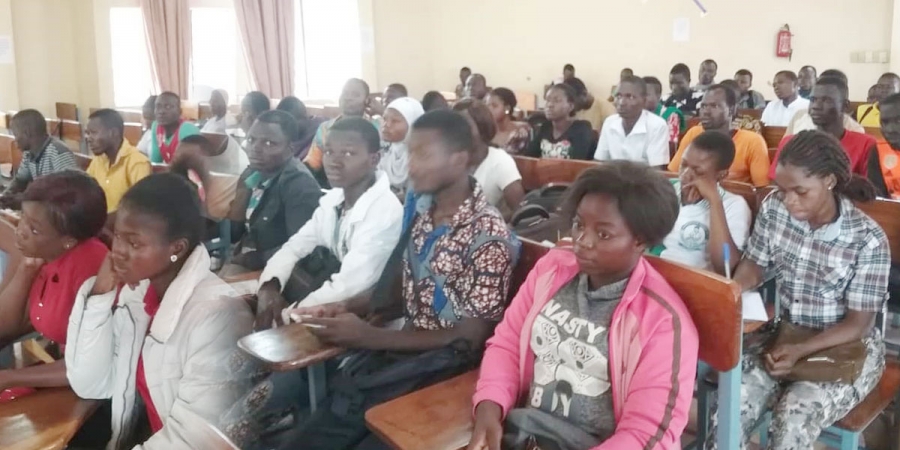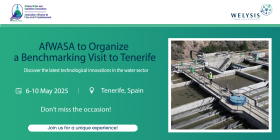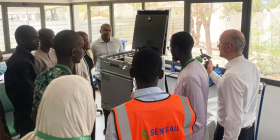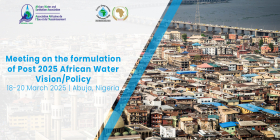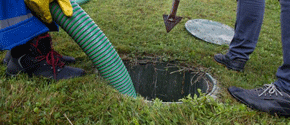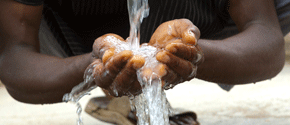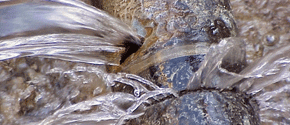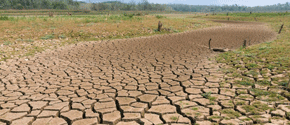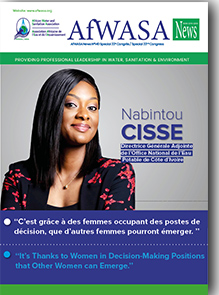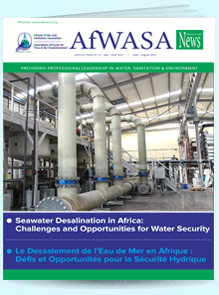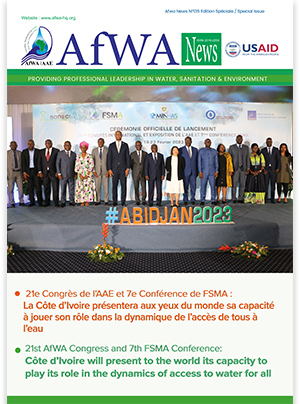The Network of Beninese Professional Women in the Water and Sanitation sector (RBFPEA) organized, on Wednesday, October 3, 2018, in partnership with the National Water Institute (INE), with the support of GIZ, an awareness campaign to enroll young women with a bachelor's degree in University training in the water and sanitation sector in Benin. The work took place in the Houdégbé Amphi of the University of Abomey-Calavi.
The initiative aims to introduce young women with a bachelor's degree to the professions of water and sanitation, which are generally considered to be male and energetic. Created in May 2018 on the recommendation of the African Water Association, the RBFPEA's vision is to promote women's leadership in the water and sanitation sector. In the implementation of this vision and specially to promote the real involvement of girls in the sector from the bottom up, the RBFPEA intends to direct its actions towards secondary education in order to see women raised to a higher level in this sector.
Promote the gender approach in the water sector
For the president of the RBFPEA, Mouminatou Adjibi, before being a technical problem, water is first and foremost a social, political, economic and environmental issue. In his view, women, better than anyone, are at the heart of solutions related to these issues. She therefore urged participants to focus their choices on water and sanitation occupations. She concluded by expressing her gratitude to all the partners who had worked to bring the initiative to fruition. "Although women are greatly mobilized around water issues that men, they remain under-represented in decision-making bodies," lamented Daouda Mama, Managing Director of INE. To this end, he called upon the new graduates to serve as relays for information, with a view to reviving interest in the water sector. The same is true of the GIZ representative, Binec Nangbé, who invited everyone to reverse the trend, with a view to promoting gender in the sector. According to Karima Sylla, the vice-rector's representative in charge of inter-university cooperation, partnerships and professional integration, the young graduates have no guidance in their choice of study path. Thus, while welcoming the initiative, she urged participants to seize opportunities related to the water sector. She ended her remarks by also calling for work on the gender approach in the sector. Several papers contributed to the debate, to the general satisfaction of the participants. One of them, Nawal Alidou, now has a clear idea of the opportunities that registration in water-related sectors offers.

 English
English  Français
Français 
